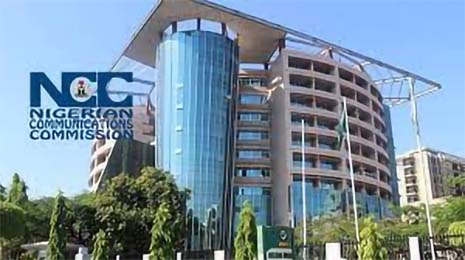The Nigerian Communications Commission (NCC) has reiterated its commitment to fostering a fair, secure, and competitive telecommunications ecosystem within Nigeria and the broader ECOWAS region. This commitment was underscored during the Virtual Stakeholders’ Forum on the Draft A2P Licensing Framework, where Mrs. Chizua Whyte, Acting Head of Legal & Regulatory Services at the NCC, delivered the welcome address on behalf of the Executive Vice Chairman/CEO, Dr. Aminu Maida.
The forum brought together stakeholders from across the telecommunications value chain to deliberate on the proposed framework for regulating Application-to-Person (A2P) messaging services. A2P messaging is a cornerstone of modern communication, enabling businesses, governments, and organizations to send SMS notifications directly to consumers. It is widely used for transactional alerts, promotional campaigns, and essential public service updates.
A2P Messaging: The Backbone of Digital Transformation
In her address, Mrs. Whyte highlighted the critical role A2P messaging plays in the digital landscape. She described it as “a powerful tool for businesses, governments, and service providers to enhance communication efficiency, support socio-economic development, and deliver value to consumers.” However, the sector faces significant challenges, including fraud, spam, data privacy breaches, and revenue leakage, which threaten its sustainability.
A Regulatory Milestone for Nigeria and ECOWAS
The NCC’s Draft A2P Licensing Framework is a pivotal initiative aimed at addressing these challenges. The framework seeks to establish a centralized system for routing international A2P messages, ensuring compliance with stringent security protocols and standardized tariffs. It also aims to create a level playing field for all stakeholders while safeguarding consumer data and fostering innovation.
Mrs. Whyte emphasized the participatory approach adopted by the NCC, stating, “Effective regulation stems from inclusivity and collaboration. This forum is an opportunity for all stakeholders—operators, aggregators, businesses, service providers, and consumers—to contribute their perspectives and help refine the framework for the benefit of the entire ecosystem.”
Key Highlights of the Framework
During the forum, Mrs. Truddy Tony-Awusaku, Assistant Director at the Licensing and Authorization Department of the NCC, provided a detailed overview of the proposed framework. Key features include:
- Centralized Routing: Establishing a unified platform for international A2P message termination.
- Licensing Standards: Introducing a five-year renewable license with clear eligibility criteria and compliance obligations.
- Enhanced Security: Mandating encryption, fraud detection systems, and compliance with data protection regulations.
- Revenue Assurance: Ensuring transparency in operations and retaining local economic benefits through taxation.
Strengthening Nigeria’s Role in ECOWAS Telecom Regulation
As the telecommunications leader in West Africa, Nigeria’s strides in A2P messaging regulation set a benchmark for the region. The NCC’s framework aligns with ECOWAS’s broader goals of harmonizing telecom regulations, fostering cross-border cooperation, and driving economic integration.
A Collaborative Path Forward
The forum marks the beginning of a multi-stakeholder engagement process. The NCC assured participants of its commitment to refining the draft framework based on the valuable feedback received. Mrs. Whyte concluded by urging stakeholders to actively contribute, stating, “Together, we can create a sustainable A2P messaging ecosystem that protects consumers, promotes fair competition, and unlocks new growth opportunities.”
The NCC remains steadfast in its mission to drive innovation, protect stakeholders, and position Nigeria as a telecom regulatory powerhouse in ECOWAS and beyond.
For more information, visit www.ncc.gov.ng.
Anthony Nwosu
Principal Partner, CONN8 MEDIA SOLUTIONS NG
Email: anthony@techandbiz.com.ng
Phone: 08038187914




